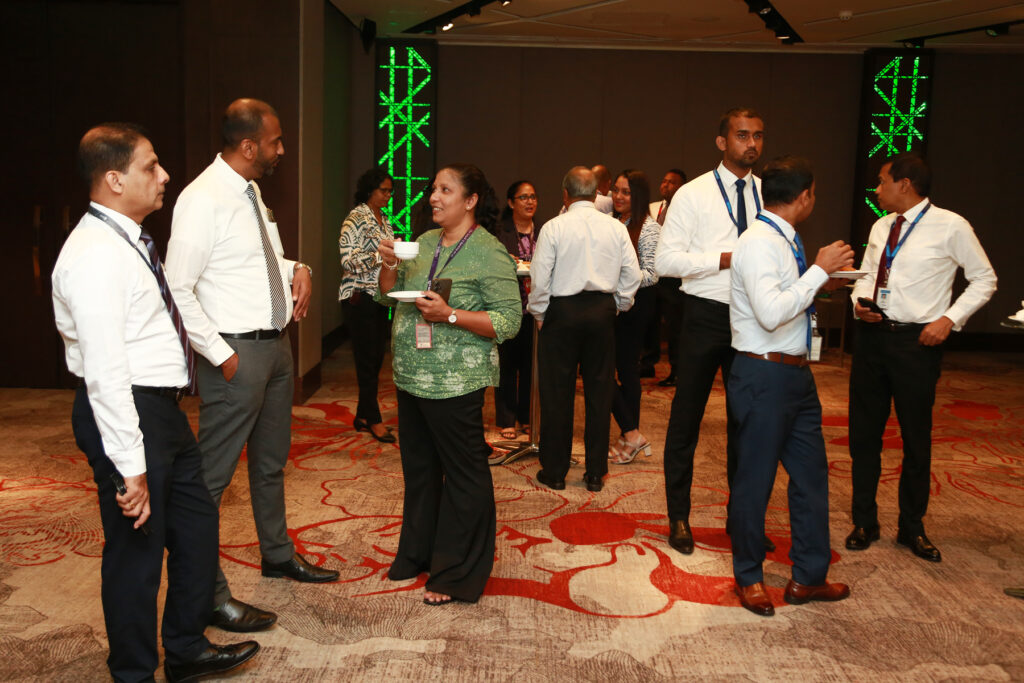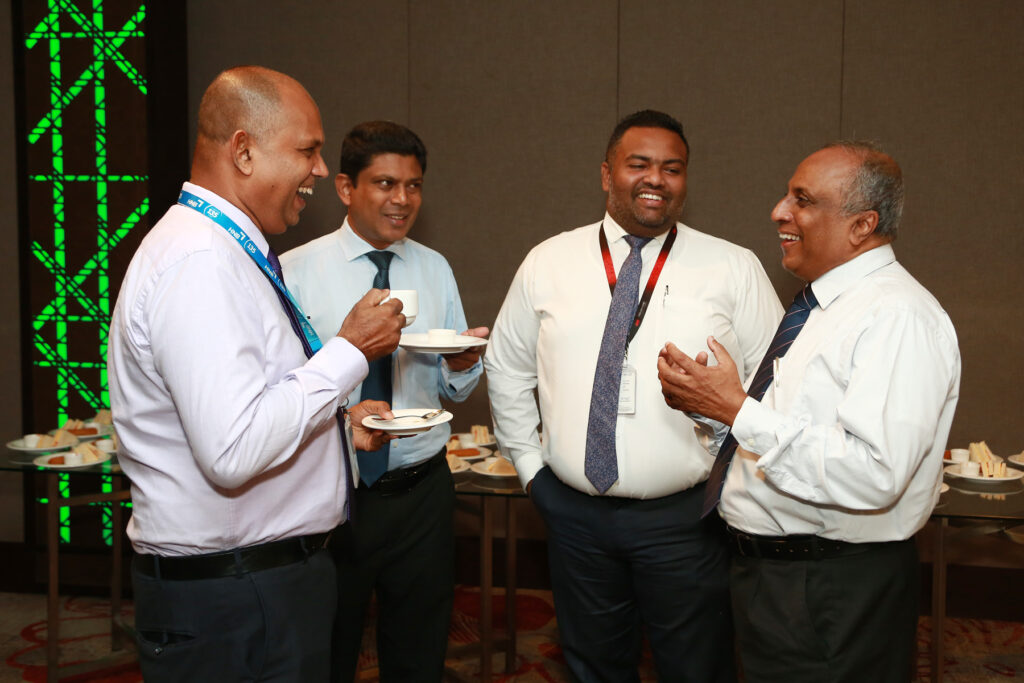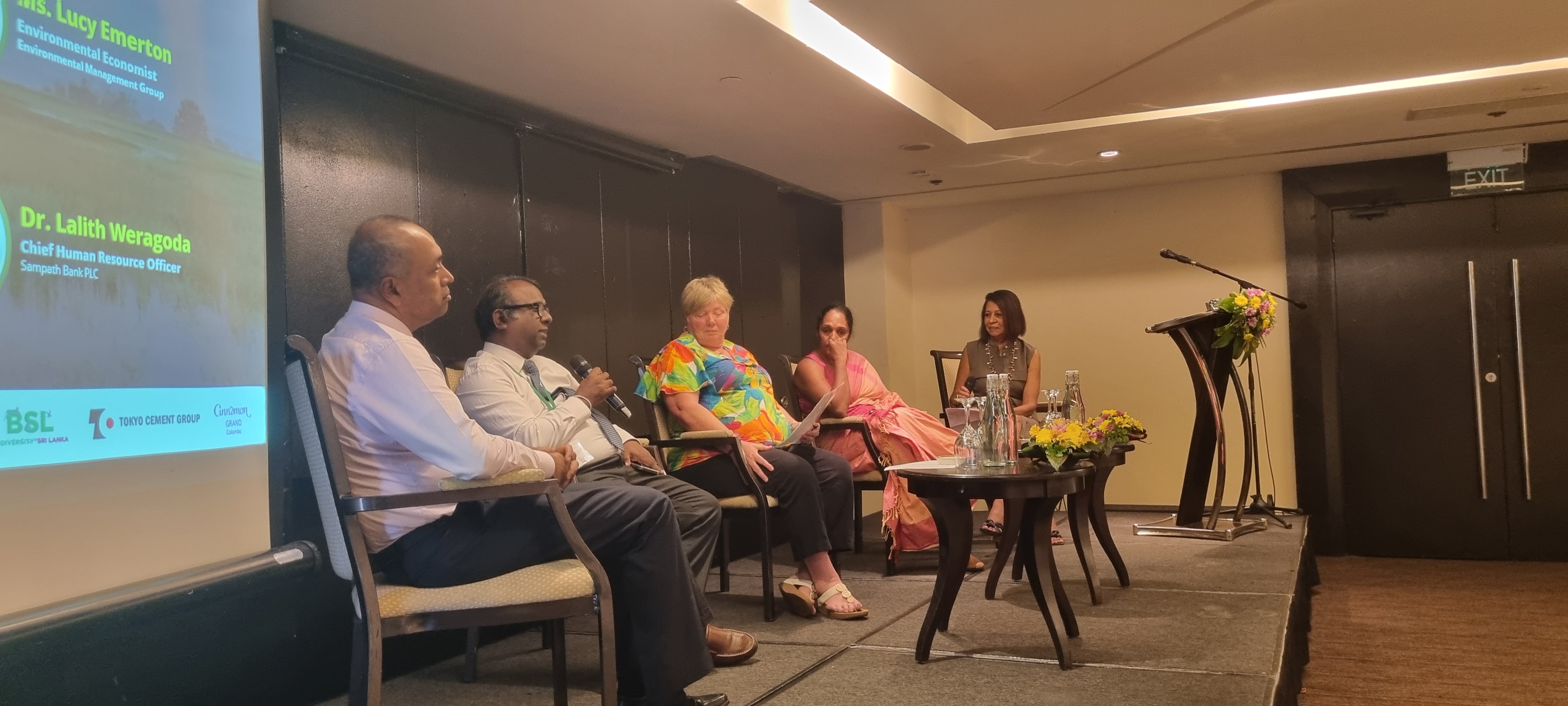
World Wetland Day Celebrations 2025: A Unified Effort to Protect Vital Ecosystems

On 5th and 6th February 2025, Sri Lanka joined the global community in celebrating World Wetlands Day, under the theme “Protecting Wetlands for Our Common Future”. This theme is particularly pertinent to Sri Lanka, a nation endowed with diverse wetland ecosystems that are vital for ecological balance and community livelihoods. Wetlands in Sri Lanka serve as habitats for numerous endemic species, support agriculture and fisheries, and act as natural defenses against flooding and erosion. However, these ecosystems face threats from urbanization, pollution, and climate change. The theme calls for collective action to safeguard these invaluable resources, ensuring they continue to benefit both nature and society. In alignment with this global initiative, Biodiversity Sri Lanka (BSL), in partnership with Cinnamon Grand Colombo, Tokyo Cement Group, Dole Lanka, and Cargills Ceylon PLC, orchestrated a series of events aimed at raising awareness and fostering collaborative conservation efforts.
Engaging the private sector
At the Cinnamon Grand Colombo, BSL, in partnership with the Tokyo Cement Group, hosted a high-level panel discussion focusing on Green Finance for Wetland Conservation on 6th February 2025. The forum convened experts from finance, environmental science, and policy-making sectors to explore sustainable funding mechanisms for wetland preservation. Discussions highlighted the economic valuation of wetlands and the integration of green finance into national strategies, emphasizing the necessity of public-private partnerships in mobilizing resources for conservation.
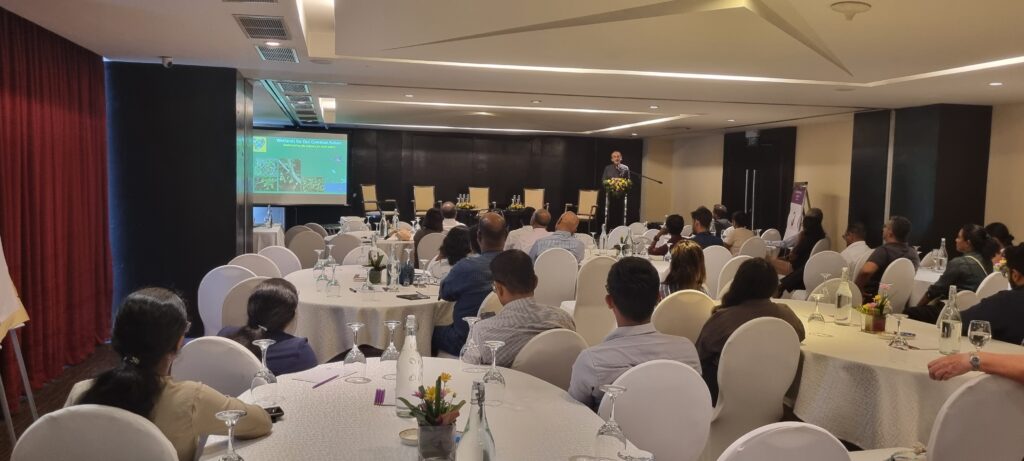
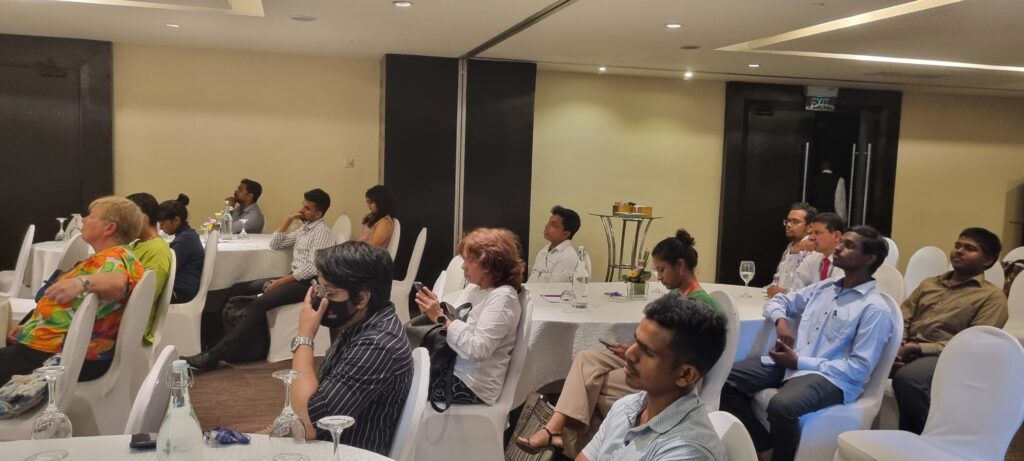
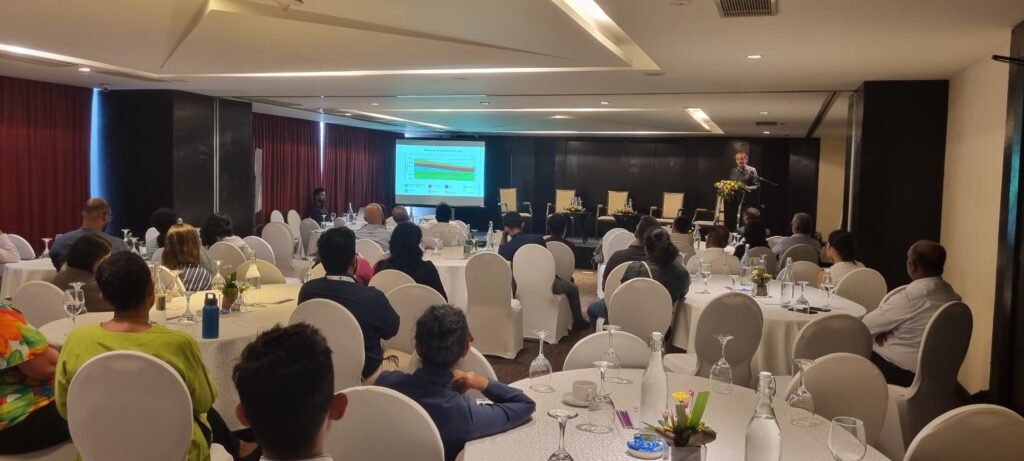

Key speakers at the event:
Ms. Chaturangi Wickramaratne (Researcher – Freshwater Ecologist, IWMI) highlighted how wetlands contribute to both ecological and economic stability, emphasizing the need for green finance integration into national economic strategies.
An interesting panel discussion was held moderated by BSL’s Senior Technical Advisor Ms Shiranee Yasaratne. The panelists included:
- Environmental Economist Lucy Emerton, who discussed the economic valuation of wetlands as a means of strengthening conservation policies.
- Nishantha Edirisinghe (Conservator General of Forests), who elaborated on Sri Lanka’s policy framework for wetland and mangrove conservation, focusing on the role of carbon offsetting initiatives.
- Professor Sewwandi Jayakody (Wayamba University), who explained how wetlands contribute to biodiversity conservation and climate resilience.
- Dr. Lalith Weragoda (Sampath Bank), who emphasized the growing role of the private sector in financing sustainable wetland conservation projects.
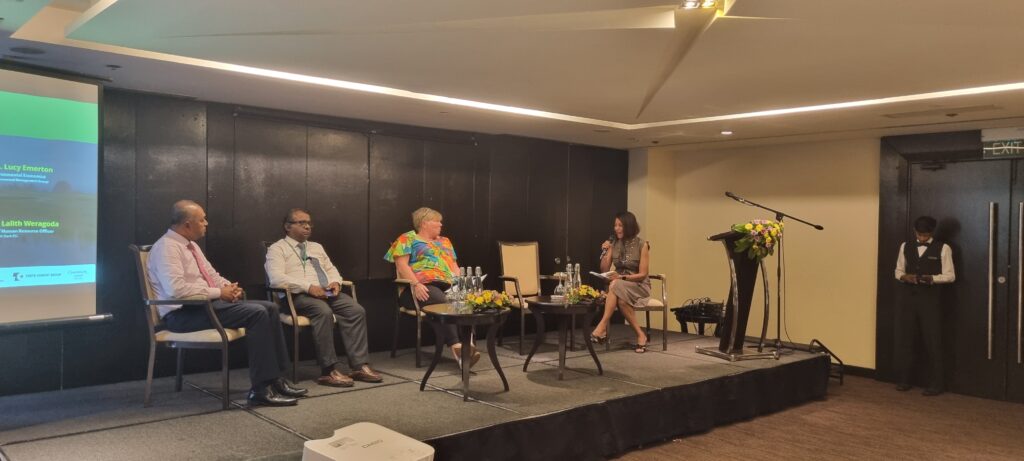
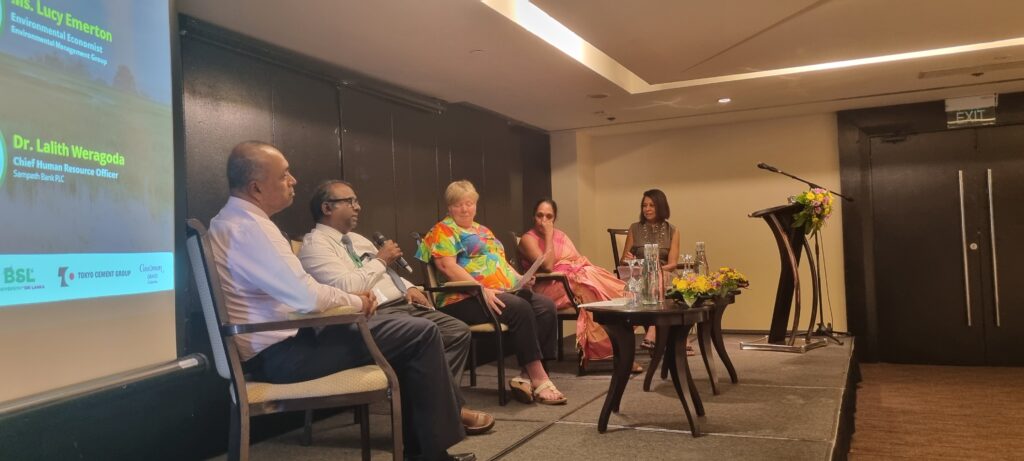
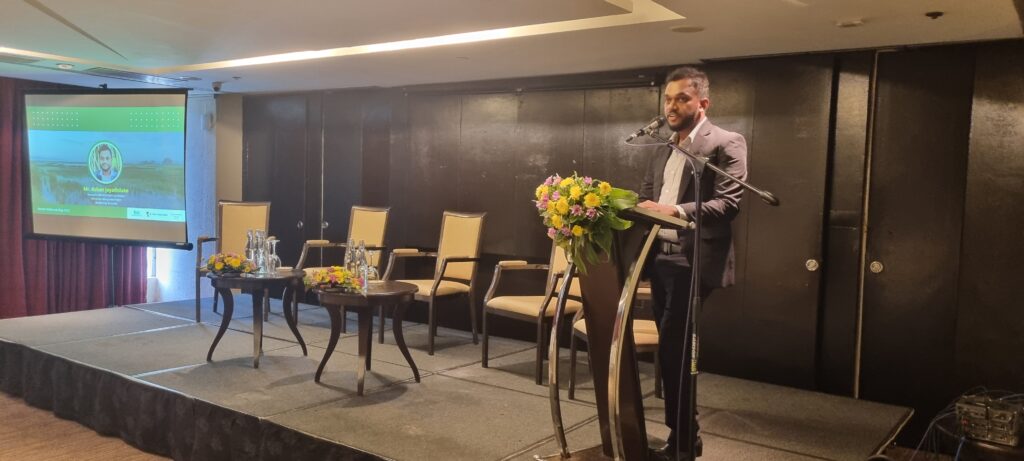

A Call for Stronger Public-Private Collaboration
The discussions stressed the importance of aligning Sri Lanka’s conservation goals with nature-based solutions, carbon offset strategies, and sustainable finance models. A key takeaway was the need for enhanced collaboration between policymakers, financial institutions, and conservation experts to ensure the long-term protection of wetlands. The event concluded with a call to action for increased investment in wetland restoration, stronger policy support, and innovative financial mechanisms to bridge conservation efforts with economic sustainability.
Looking Ahead: A Commitment to Conservation
The events organized by BSL exemplify a holistic approach to wetland conservation, combining education, financial investment, and policy dialogue. By aligning local initiatives with the global theme, Sri Lanka demonstrates its commitment to preserving wetlands as a shared responsibility. As the world prepares for the 15th Meeting of the Conference of the Contracting Parties to the Convention on Wetlands (COP15) in July 2025, these efforts underscore the importance of unified action in protecting wetlands for our common future.
Through these initiatives, BSL reaffirmed its commitment to wetland conservation and underscored the indispensable role of the private sector, financial institutions, and youth engagement in driving meaningful environmental change. As Sri Lanka continues to face ecological challenges, such proactive efforts will be essential in securing the future of its wetland ecosystems.
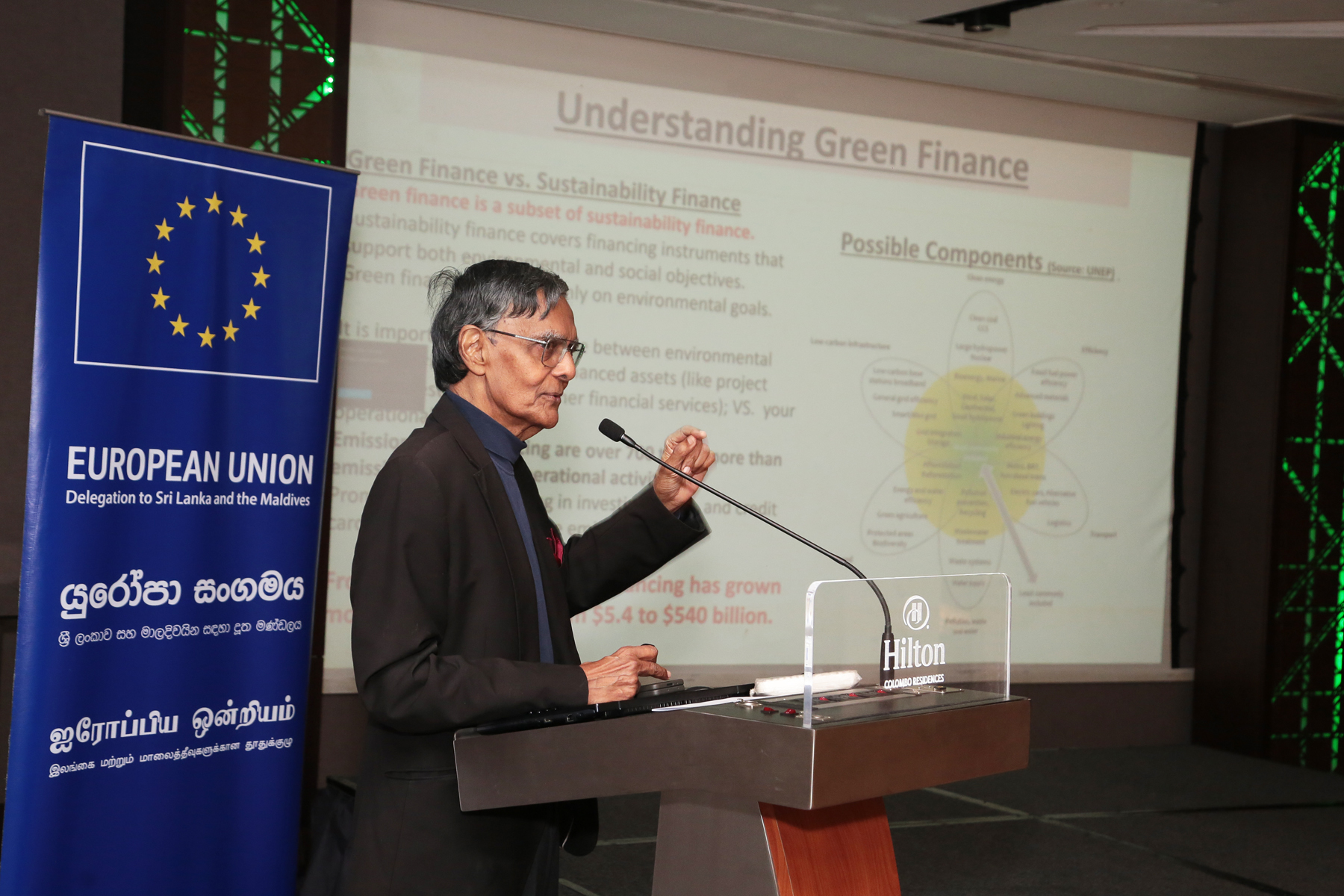
Sri Lanka’s Banking Sector: Embrace Green Finance or Fall Behind
Sri Lanka’s banking and financial sector is at a pivotal moment. With the global focus on sustainable investments, attracting green finance is now a necessity, not a choice. Professor Mohan Munasinghe, a renowned expert on sustainable development and climate finance, addressed Sri Lankan banking professionals at a seminar organised by Biodiversity Sri Lanka (BSL) under the Project PLASTICS initiative, funded by the European Union’s SWITCH-Asia programme. The event held on January 30 2025 at Jaic Hilton Colombo, aimed to help financial institutions promote a circular economy in Sri Lanka by providing them with necessary tools.
The seminar gathered 75 financial institution representatives to discuss the importance of green finance in promoting sustainable economic practices. The worldwide green finance market is growing quickly, with trillions of dollars going into projects focused on climate resilience, low-carbon, and biodiversity. For Sri Lanka’s banks to attract these funds, they must move beyond traditional lending models and embrace sustainability-aligned investment strategies.
Prof. Munasinghe’s Call to Action
Prof. Mohan Munasinghe, a Nobel Laureate and former Vice-Chair of the Intergovernmental Panel on Climate Change (IPCC), emphasised the golden opportunity for Sri Lanka’s financial institutions to adopt innovative sustainability-focused financial practices. He emphasised the need to follow global green finance standards and incorporate Environmental, Social and Governance (ESG) principles into policies to build investor confidence and stay competitive. Following frameworks such as the TCFD and TNFD can assist Sri Lankan banks in handling climate risks and appealing to global investors.
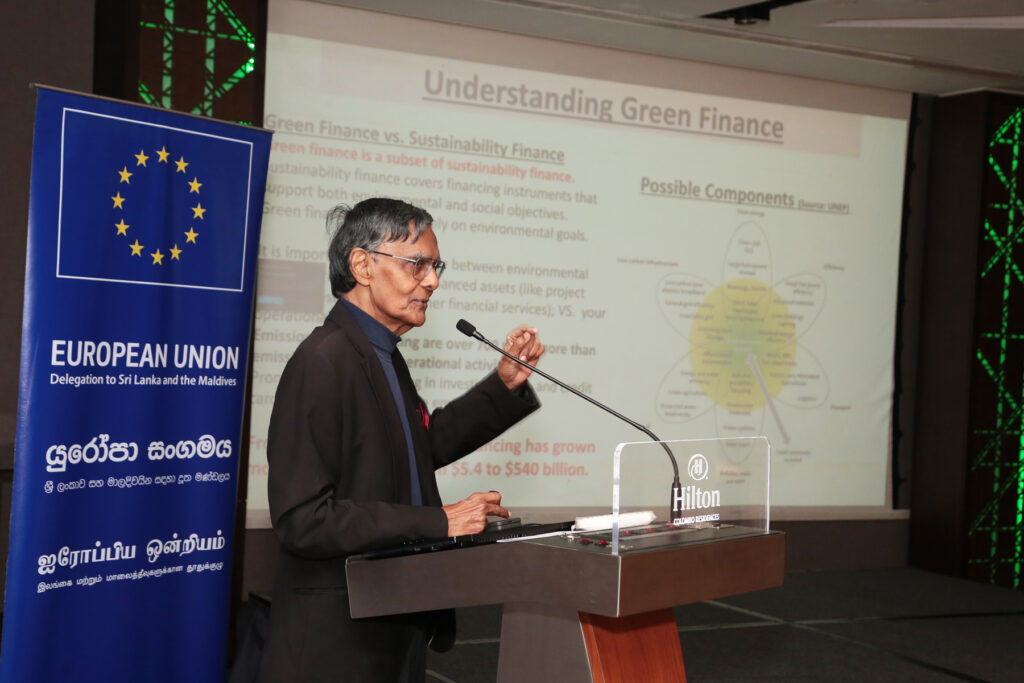
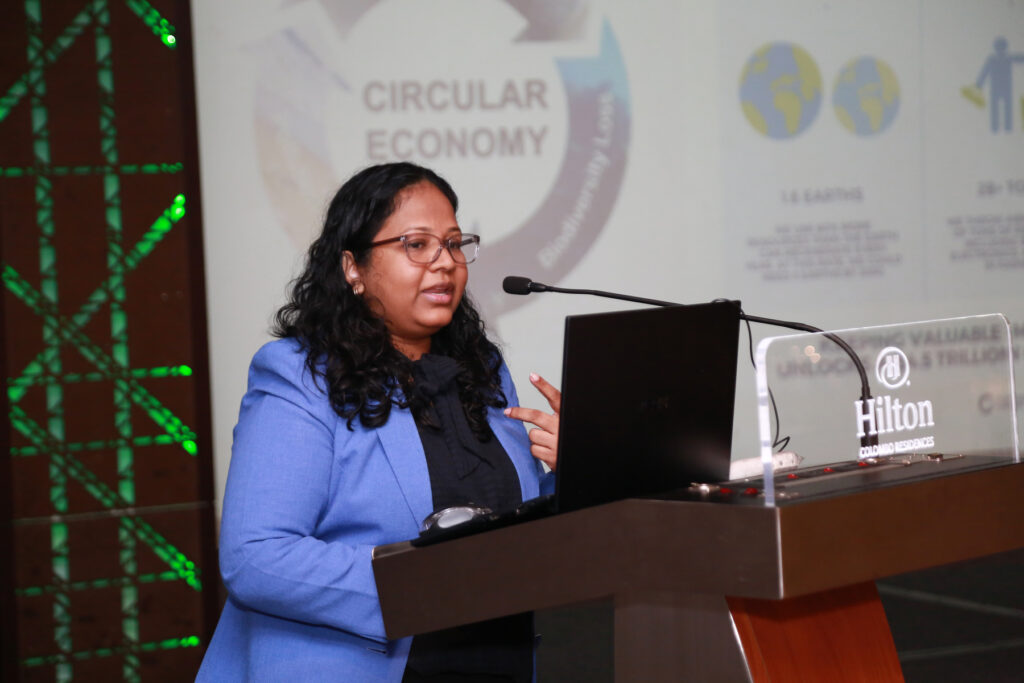
Driving Circular Innovation
Dr. Randika Jayasinghe emphasised the importance of banks in promoting the shift to a circular economy in Sri Lanka. She highlighted the need to shift from a linear to a circular economy to address climate change, biodiversity loss, and pollution. Banks can significantly influence the speed and scale of circular adoption through their investment decisions. Dr. Jayasinghe highlighted the importance of incorporating circular practices into financial strategies for sustainable financing and economic growth.
The Future of Business Sustainability
Sri Lanka is at a critical point in its economic and environmental path. As global industries adopt sustainability, the island nation needs to incorporate circular economy principles for long-term resilience. BSL’s Green Finance Specialist, Mr. Errol Abeyratne stressed the immediate importance of Sri Lanka shifting from a linear economic model to a circular one. He showed how industries can cut their carbon footprint and boost efficiency with circular business models that comply with global standards to stay competitive.
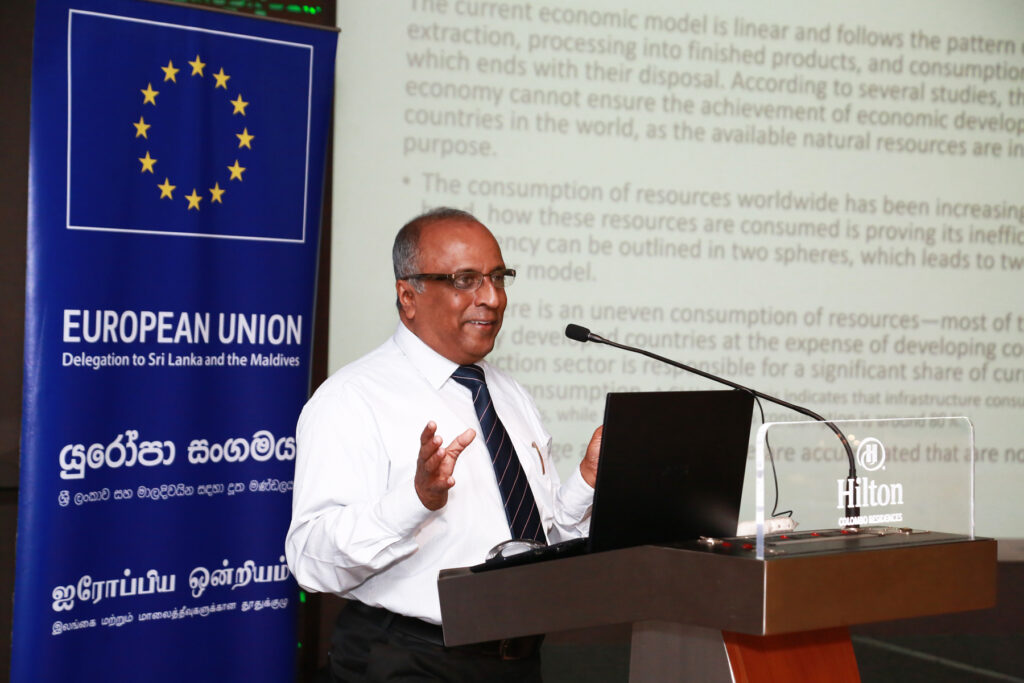
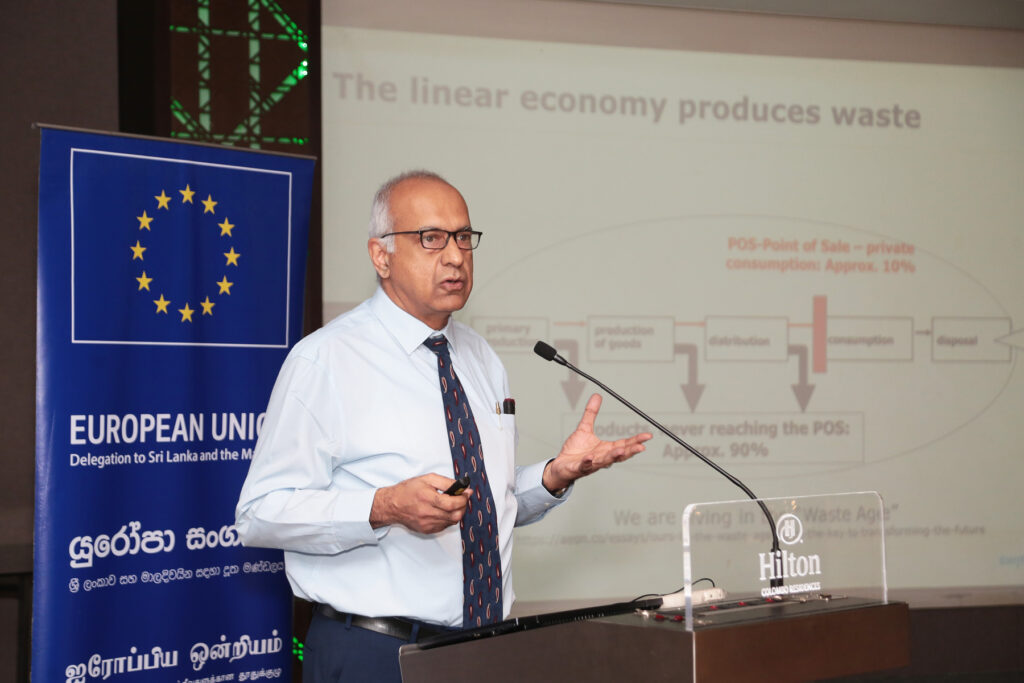
Resource Efficiency and Cleaner Production
Dr. Rajat Batra from STENUM Asia emphasised the negative effects of the linear economy on the environment and businesses, stressing the importance of transitioning to a Circular Economy and adopting Resource Efficient and Cleaner Production practices. He pointed out how wasteful resource flows in the linear economy led to environmental harm and increased business costs. Dr. Batra discussed effective methods from Europe and Asia, highlighting how industrial symbiosis and resource efficiency can lead to cost savings and environmental benefits.
The point of view of a business owner
Speaking on behalf of Small and Medium Enterprises (SMEs), Ample Clothing’s Co-Founder and Director Upekha Premathilaka highlighted the company’s commitment to sustainability and the circular economy, focusing on transforming plastic waste into biodegradable fabrics and promoting zero-waste fashion. She underscored the significant environmental impact of the fashion industry and the urgent need for sustainable practices. According to her, “Banks must evolve to support the circular economy, providing the necessary financial tools and investments to help businesses transition to sustainable models. Without this support, we risk being left behind in a rapidly changing economic landscape.”
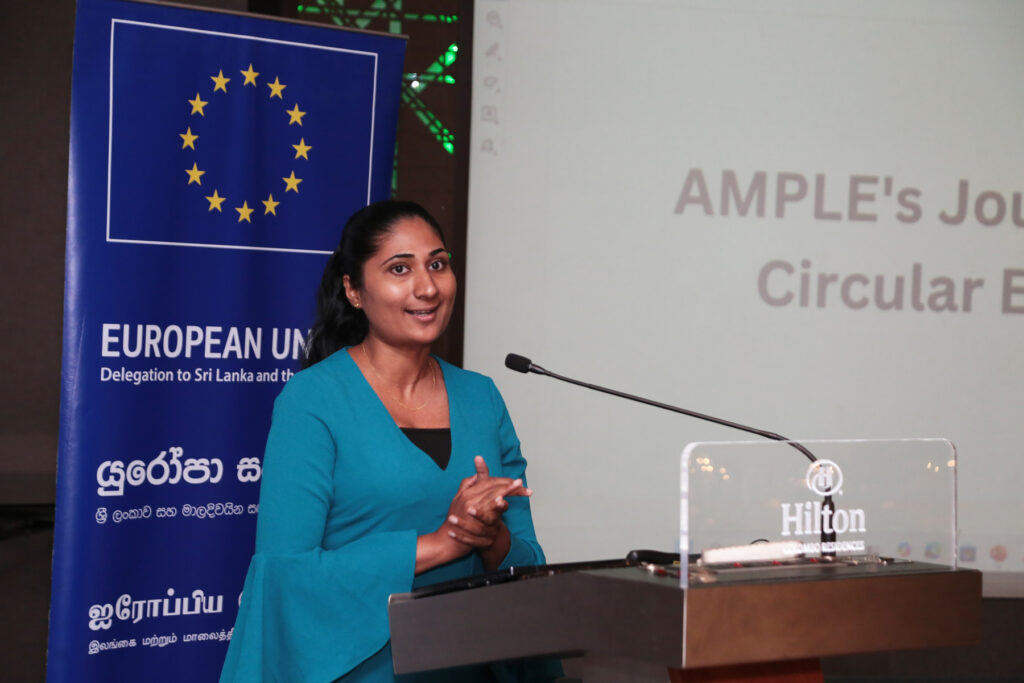
Panel calls for a Green Financial Revolution
In closing, a highly interactive panel discussion was held with the participation of: Chief Manager SME Banking of Commercial Bank Mr Mohan Fernando; Head of Sustainability Union Bank Mr Adheesha Perera; Managing Director of Alliance Finance Mr Romani de Silva; and Group Chief Financial Officer of Aberdeen Holding Group Mr Anushka de Silva. The panel emphasised the significance of creating environmentally friendly financial products like green bonds, sustainability-linked loans, and low-carbon investment funds. These financial instruments provide a competitive edge and unlock new funding opportunities for climate-friendly businesses and projects in Sri Lanka. Supporting nature-based solutions (NbS) such as mangrove restoration and regenerative agriculture is essential due to their financial and environmental benefits.
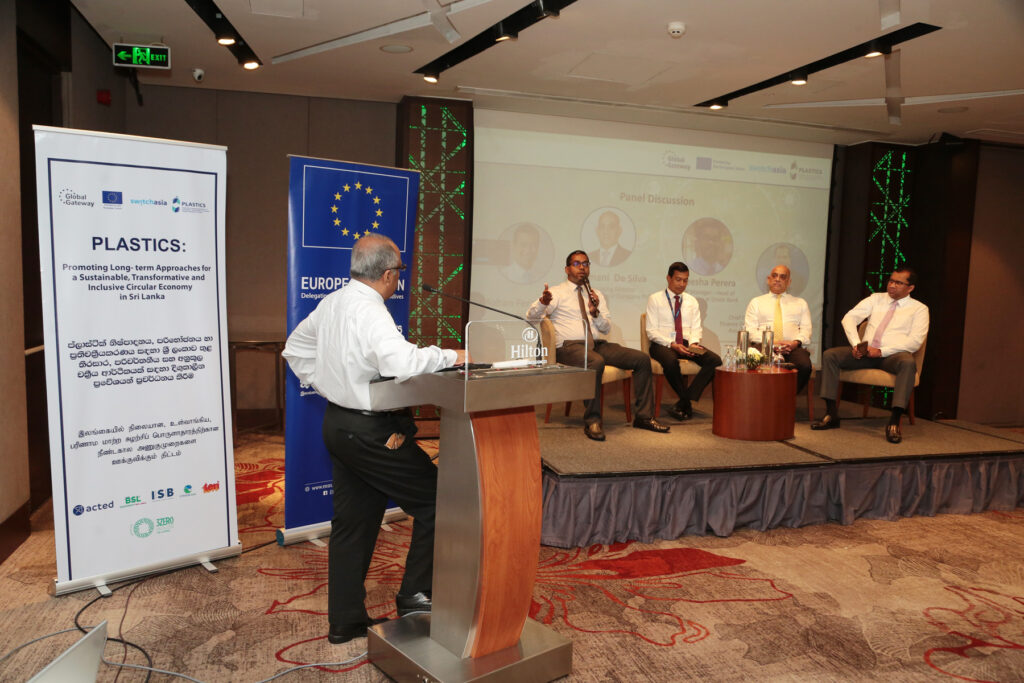

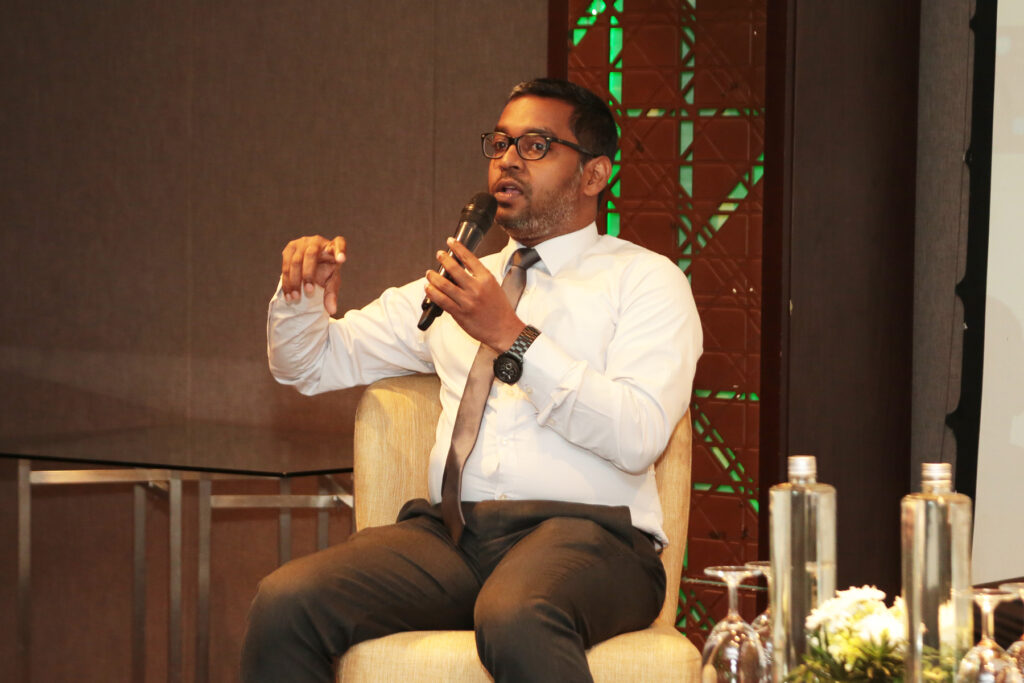
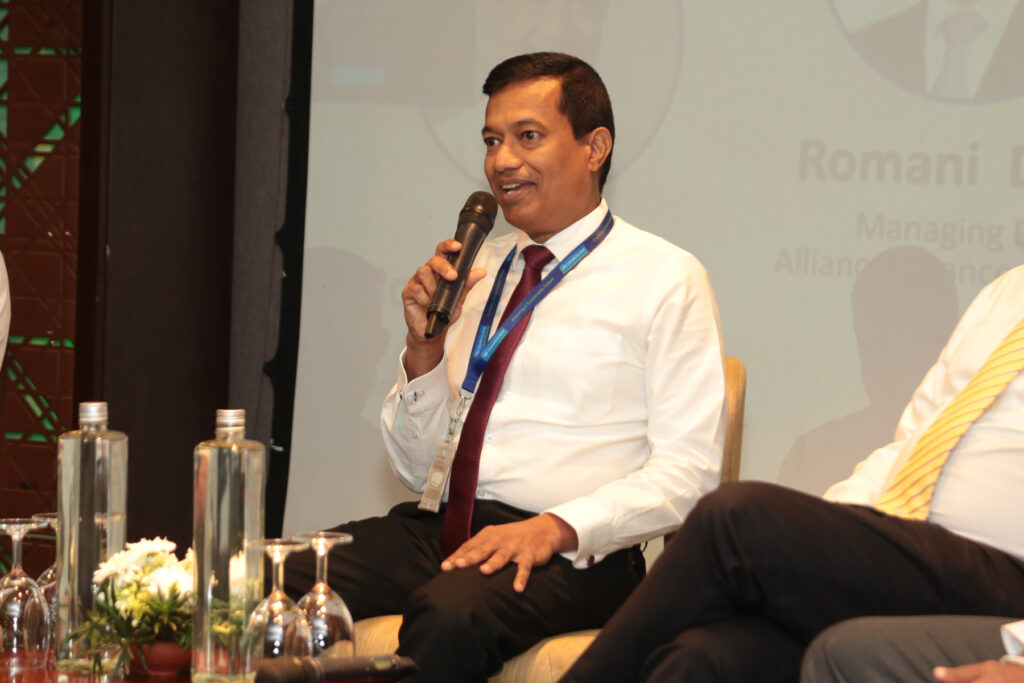
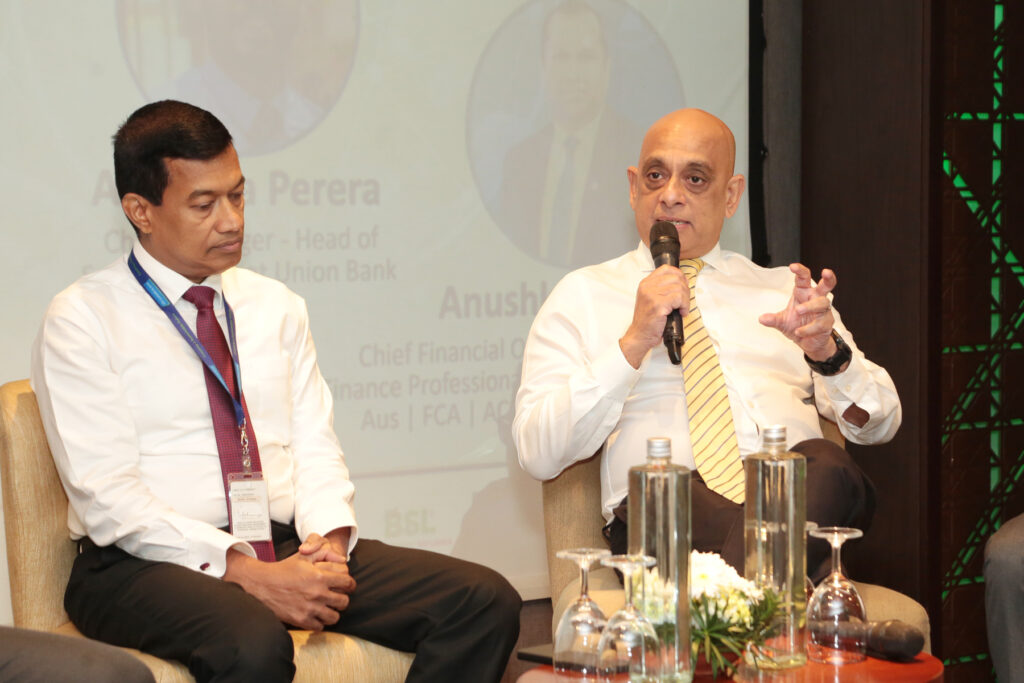
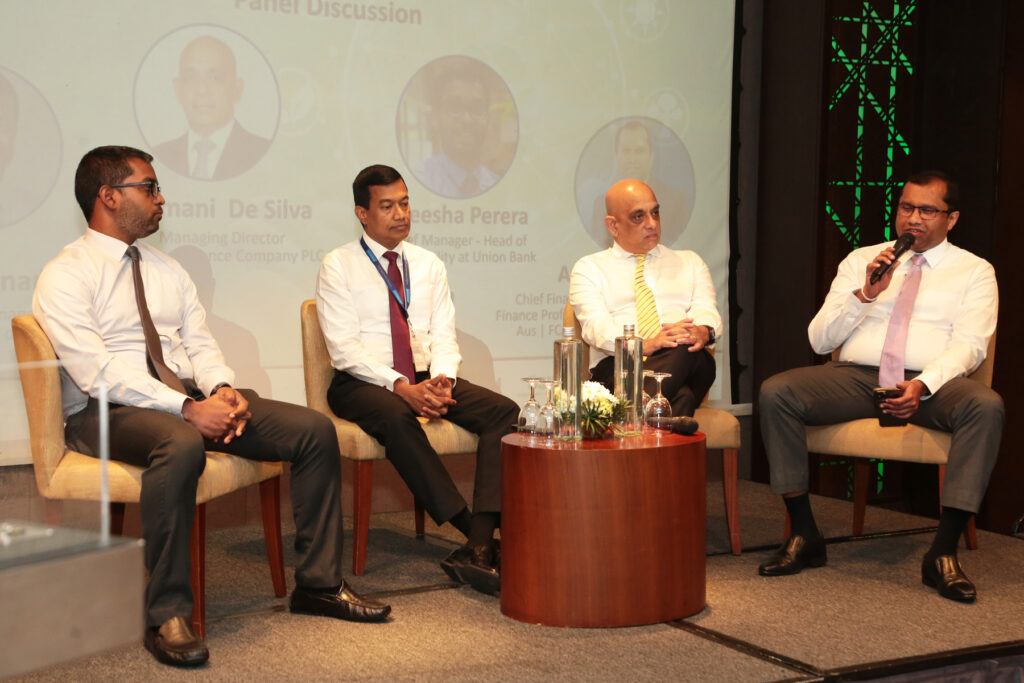
The panel also cautioned that delaying action may cause Sri Lanka to lose billions in global climate finance. As developed nations and financial institutions focus on green investments, countries with policy misalignment risk missing out on international funding. The need to take action is emphasised by changing global regulations, like the European Union’s Carbon Border Adjustment Mechanism (CBAM).
For Sri Lanka’s financial sector to fully benefit from green finance opportunities, it must adopt a systematic and integrated approach. Strengthening collaboration between banks, government agencies, and conservation organisations is key. Financial institutions need to collaborate with policymakers to create policies that promote sustainable investments and adhere to global environmental standards.
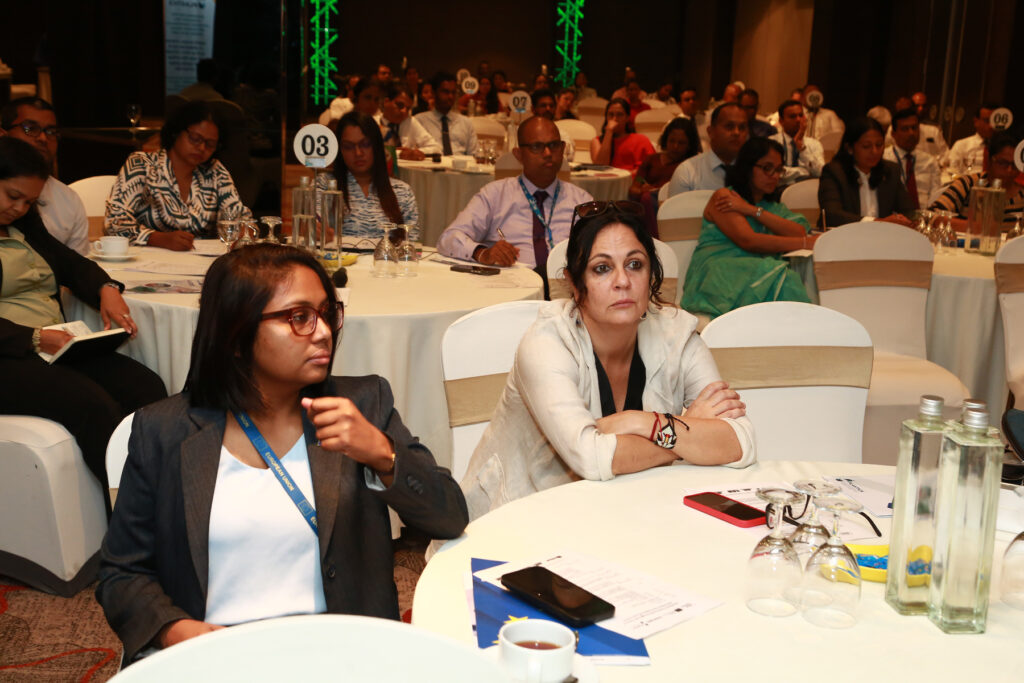
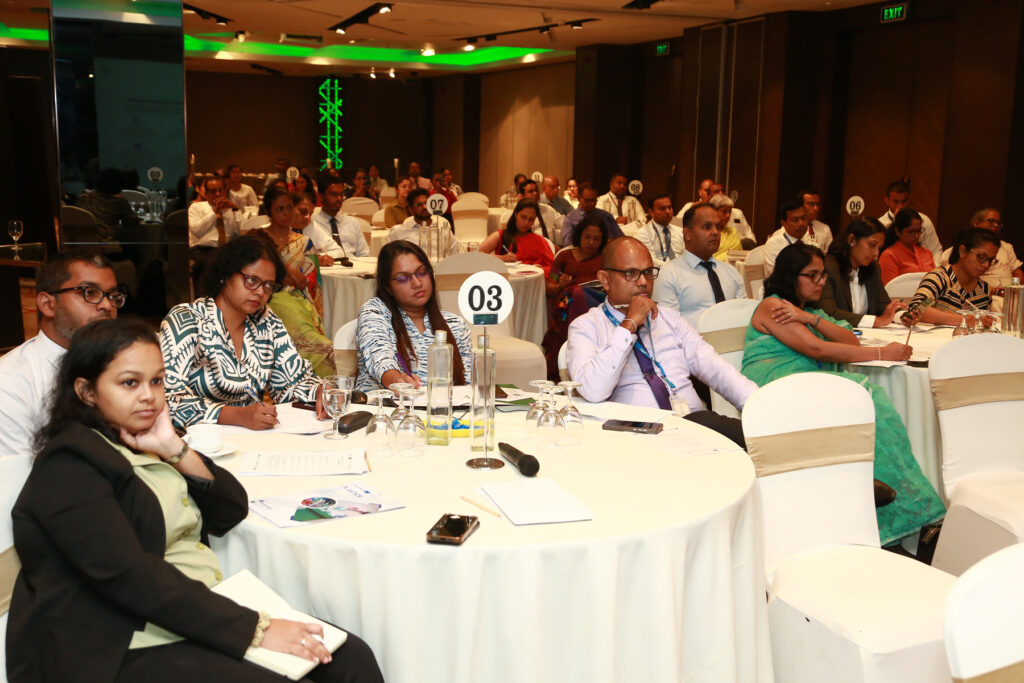
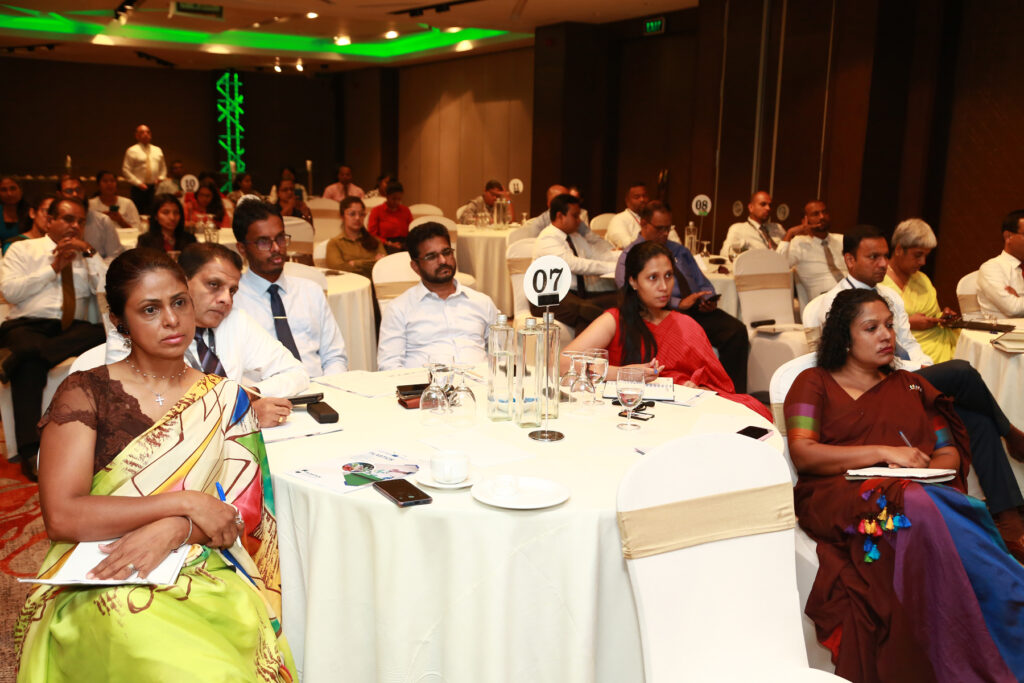
Building Partnerships and Expertise
Establishing partnerships with global financial institutions is crucial. Several global banks and development finance institutions are looking for sustainable investment opportunities in emerging markets. Sri Lankan banks can attract long-term partnerships for economic resilience and environmental sustainability by taking proactive steps in green finance.
Building internal capacity and expertise is also essential. Financial institutions must invest in training programmes and knowledge-sharing initiatives to equip their teams with the necessary skills to assess and manage climate-related financial risks. Developing in-house expertise on green finance will allow banks to effectively structure sustainability-linked products and services while advising clients on transitioning to greener business models.
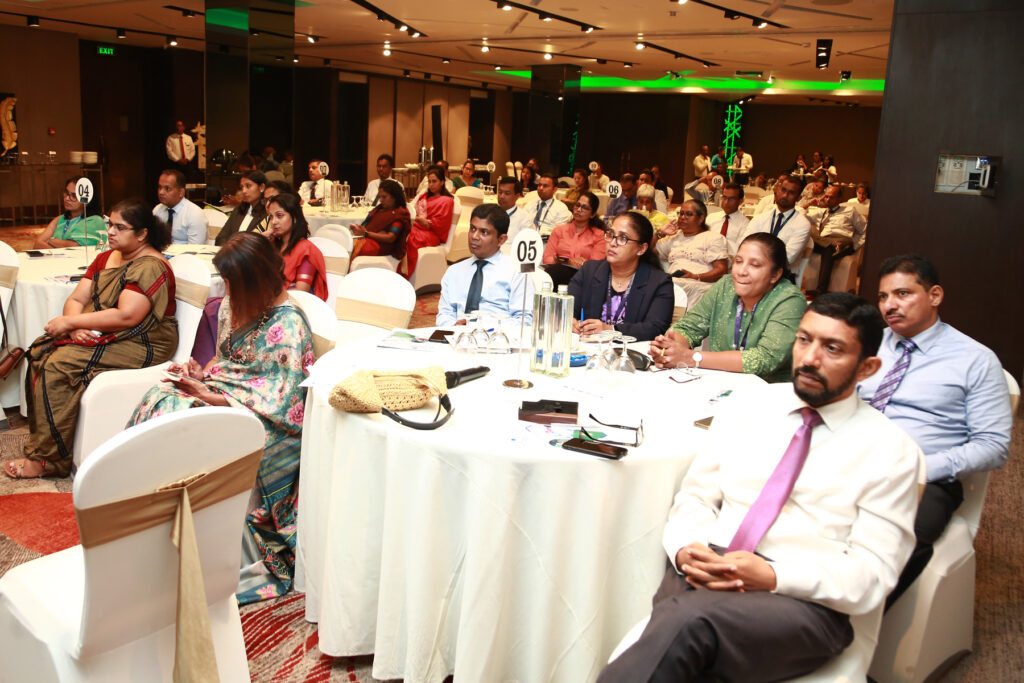
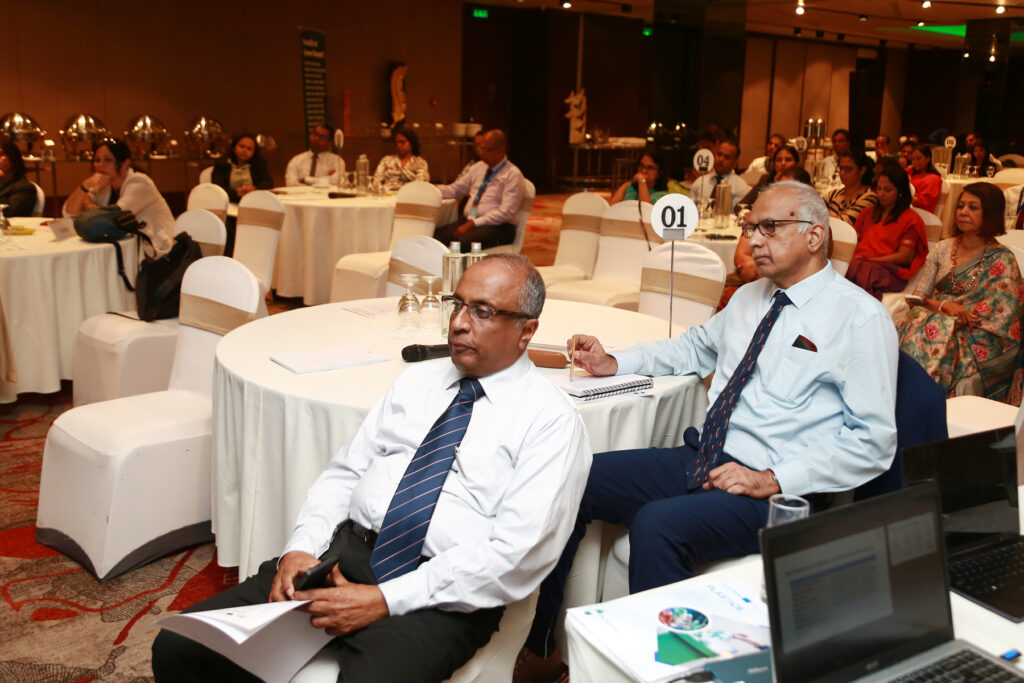
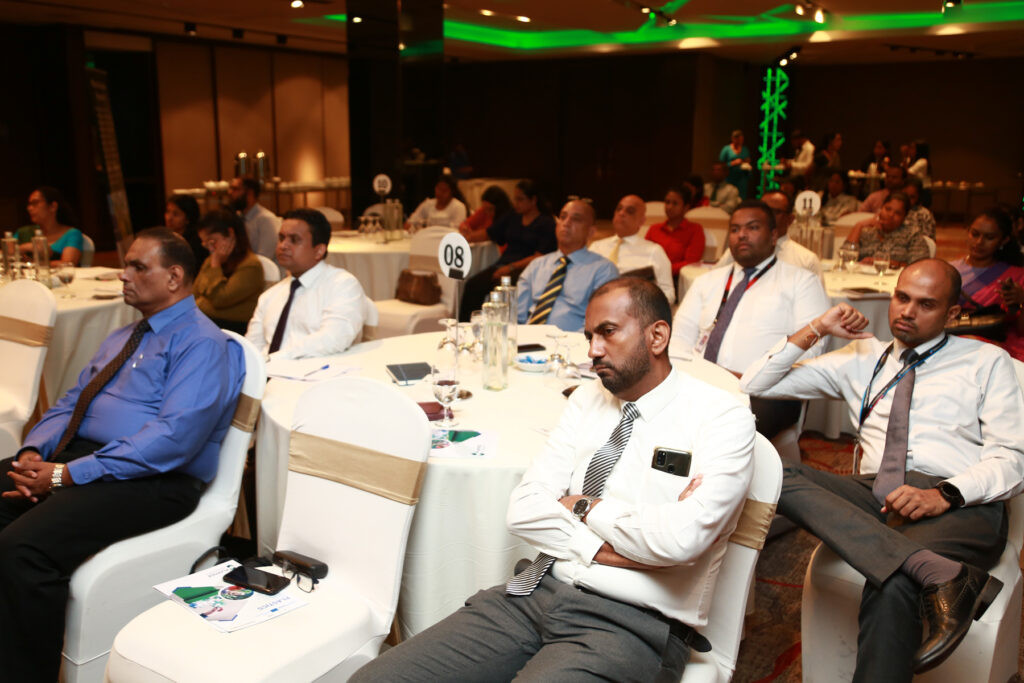
The Future of Banking
The global green finance movement is not a passing trend—it is the future of banking. Prof. Munasinghe’s insights provide a clear roadmap for Sri Lanka’s financial institutions to secure their place in this evolving landscape. With bold leadership, strategic action, and a commitment to sustainability, Sri Lanka’s banking sector can attract global green finance and position itself as a leader in Asia’s sustainable finance ecosystem. The time to act is now.
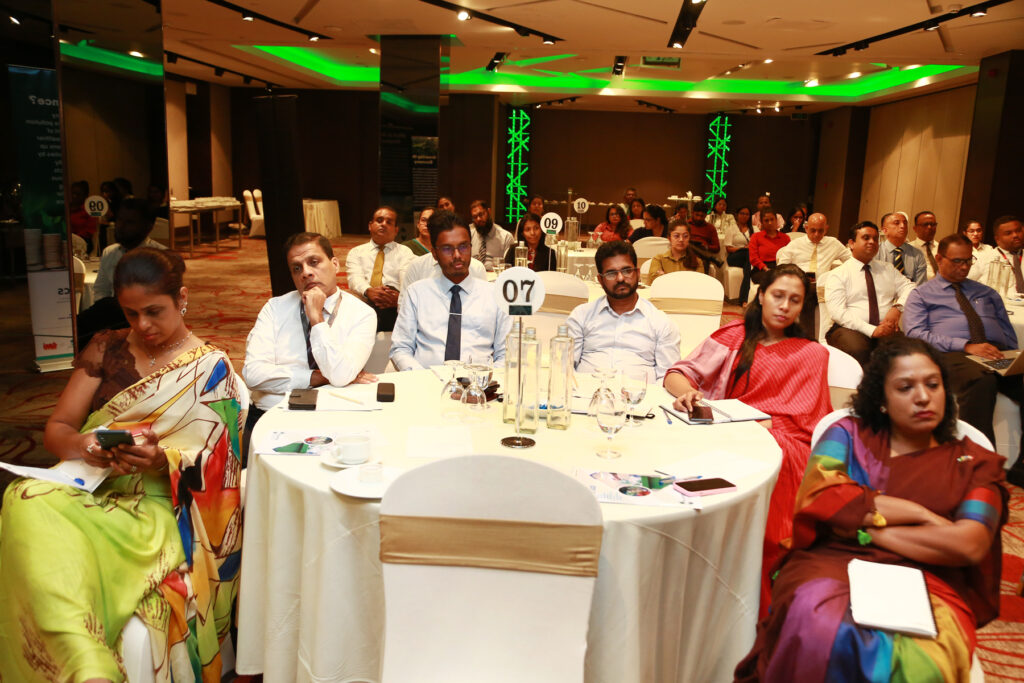
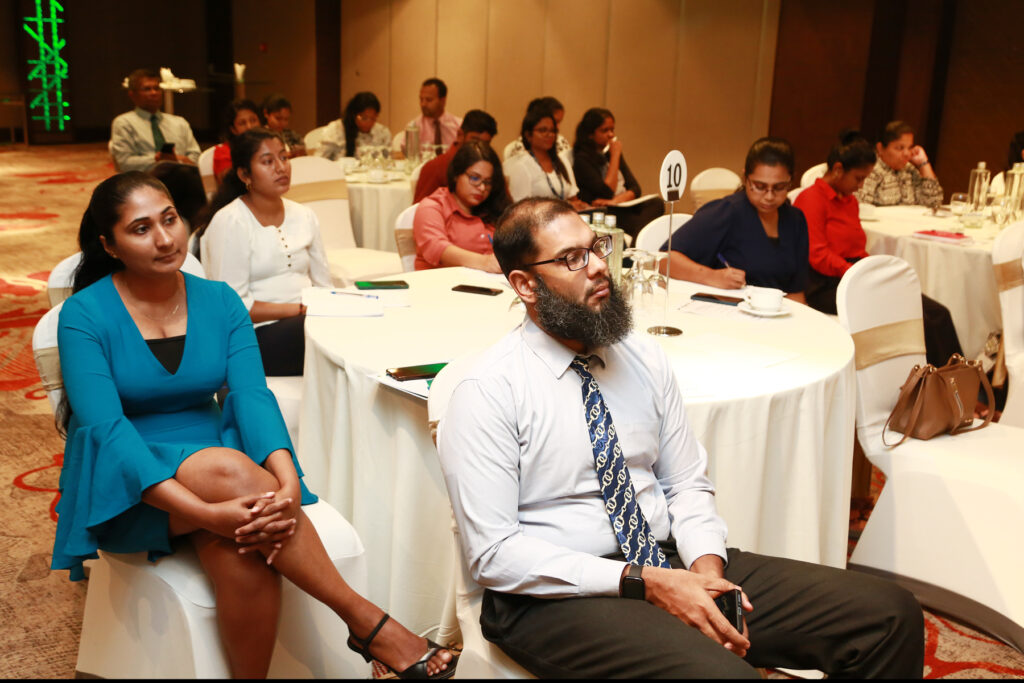
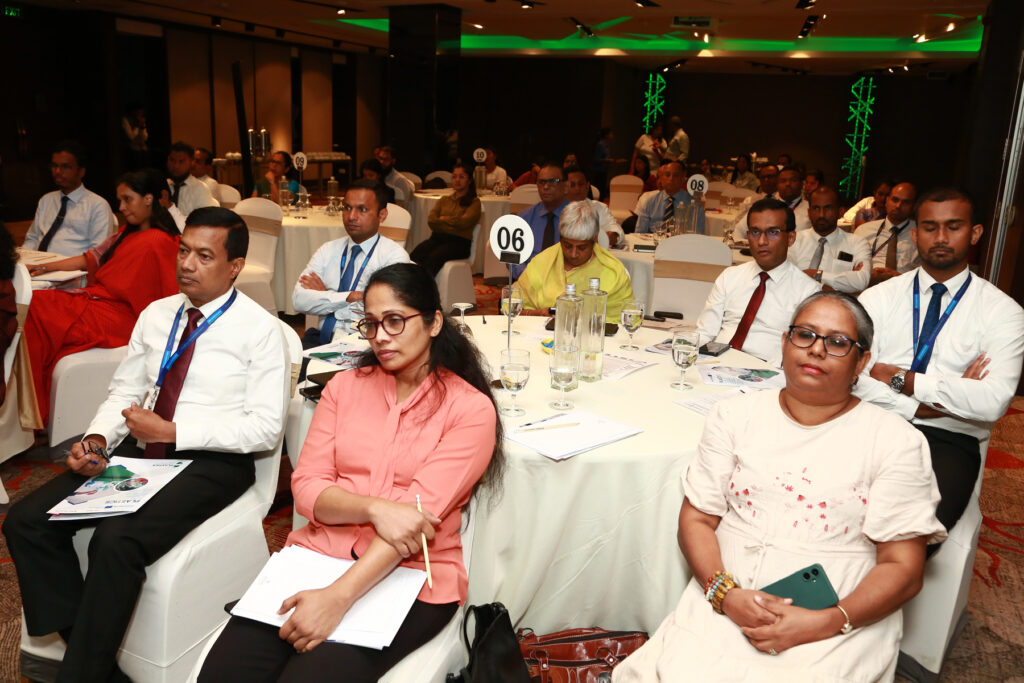
Sri Lanka can leverage frameworks like the European Union’s Circular Economy Action Plan (CEAP) and the UN’s Sustainable Development Goals (SDGs) to attract green investments and enhance global trade partnerships. However, challenges such as the lack of awareness and infrastructure to support circular economy initiatives must be addressed. Government-backed incentives and a clear regulatory framework are essential for a successful transition. To make Sri Lanka a regional sustainability leader, businesses need to use green finance, focus on sustainable sourcing, and build partnerships for circular economy principles. Policymakers should back these initiatives by enforcing sustainability regulations, providing incentives for green innovation, and promoting partnerships with international organisations.
By adopting these strategies, Sri Lanka’s banking sector can ensure its future in the global green finance landscape and support a sustainable and resilient economy.
